6–16 November 2019, Circa Theatre, Wellington
Meeting Karpovsky was created by Helen Moulder, Sue Rider and Sir Jon Trimmer, and was performed by Helen Moulder and Sir Jon Trimmer
reviewed by Jennifer Shennan
Now here’s something different—a play about the ballet. Sylvia, an older woman living alone, is hanging onto the memories of the 127 times in her life she has seen the celebrated ballet dancer, Alexander Karpovsky, in performance. She uses those memories, and the sorting of her daughter Anna’s possessions that are cluttered in the attic, to keep the surface of each day moving along, and to fill her slow quiet nights.
Apart from the many boxes of Anna’s possessions, the set features posters of Karpovsky in his roles as Petrouchka, Albrecht, Widow Simone and Drosselmeyer. Sylvia converses with each character in turn, venting her woes and frustrations, but hastening to assure herself and us that she is in control, of course she is in control, why would she not be in control, the painful ankle is better some days than others, and she thinks the frozen shoulder is coming right, there’s food in the sparse pantry, she’ll probably settle for a baked potato with a sprinkle of cheese and chives for her supper tonight, or two baked potatoes perhaps, and it’s true cream cheese is very nice with baked potatoes but she thinks she might be out of cream cheese so never mind, just the cheddar and chives will do nicely.
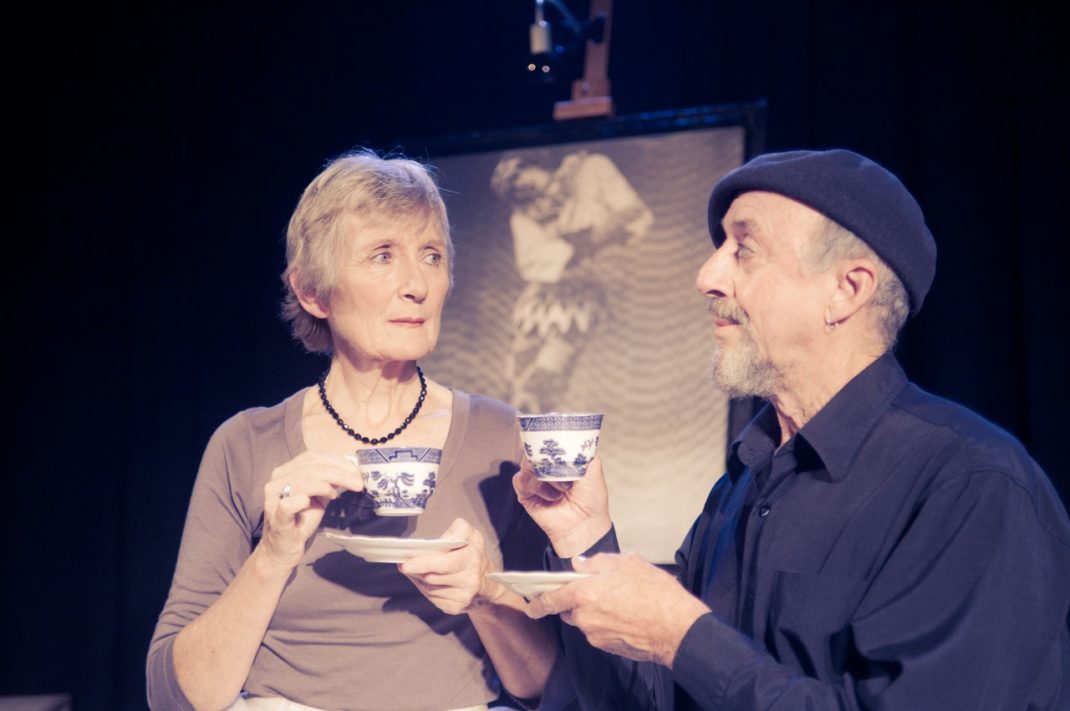
In haunting evocations of the personality that each ballet character represents in the original choreographies, Sylvia wants to understand what happened to them, why, what it meant, what happened next? She searches for what she and the characters might have in common experience—’Petrouchka, you’re a puppet, but who is pulling your strings? Albrecht, how could you have let Giselle die and then became a wili? Widow Simone, I’ll bet you regret leaving your daughter so badly guarded. Drosselmeyer, what’s the use of your feeble magic wand if you can’t use it to put right the bad things that happen to people?’
Karpovsky’s spectre visits Sylvia in a series of vignettes, but it transpires he’s more guardian angel than ghost. These are not nostalgic remnants of performance memories fluttering about, but more like threads from a string of prayer flags loosed into the wind. Should Sylvia catch them or let them go? Both or neither? Collect them and weave them back together again, into a tablecloth for an afternoon tea-party, say?
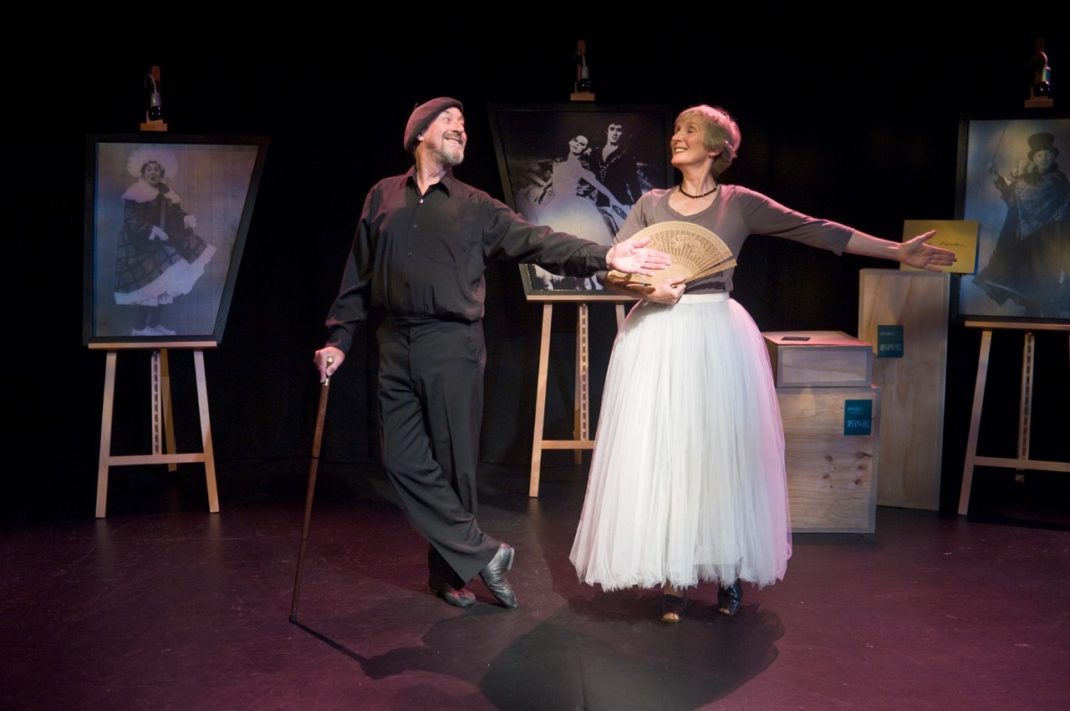
No one else I know bothers to think about the libretti and narrative thrust of ballets in this way. Rider, Moulder, Trimmer, Sylvia and Karpovsky do, and invite us to follow their lead and do likewise. The effect is astonishing—strange yet familiar, secret yet shared, a duty of care, a literature of narratives salvaged from the archive of performances forgotten, choreographies abandoned, hopes postponed, dreams denied. How many of the ballets you have ever danced in, or seen performed, have anything to do with the life you or your family have lived?
The poignancy of these questions, to which there are no ready responses, is beyond words by the following day, so we’ll just have to accept that as the ephemeral nature of an enduring art, as food for thought, and swiftly book to go back for another performance.
Besides, there are too many spoiler alerts needed. A knife, a yelp of pain from an audience member taken totally unawares, a distant siren in the following silence—police? ambulance? (now, that can’t have been a planned sound effect of the play. It must be a sign from the dark night outside that what’s going on inside the theatre is another but related reality).
This production won the Listener Best Play of the Year at its premiere season, and the lambent Helen Moulder, an exquisitely musical performer, won the Chapmann Trip Best Actress of the Year award. It’s easy to see why.
That Jon Trimmer has just celebrated his 80th birthday only adds to the wonder of his totally focused performance. He is required to speak just one word the whole evening, but for the rest he moves with the mana, memory, muscles, and mercurial mind of a genius of dance and theatre. He mimes, demonstrates and teaches Sylvia little fragments from the ballets—’step and point, incline, epaulement … gallop and turn … scuff and shuffle’—that she might do the clog dance from La Fille Mal Gardée, or step through the throbbing of Giselle’s pain and of the sorrowing wilis, or pay attention to the conjuring tricks of Drosslemeyer. But it’s Trimmer’s recreation of the Booth and Cell scenes from Petrouchka that will ache you, break you and mend you again. You’d better remember it because you won’t ever see the like again.
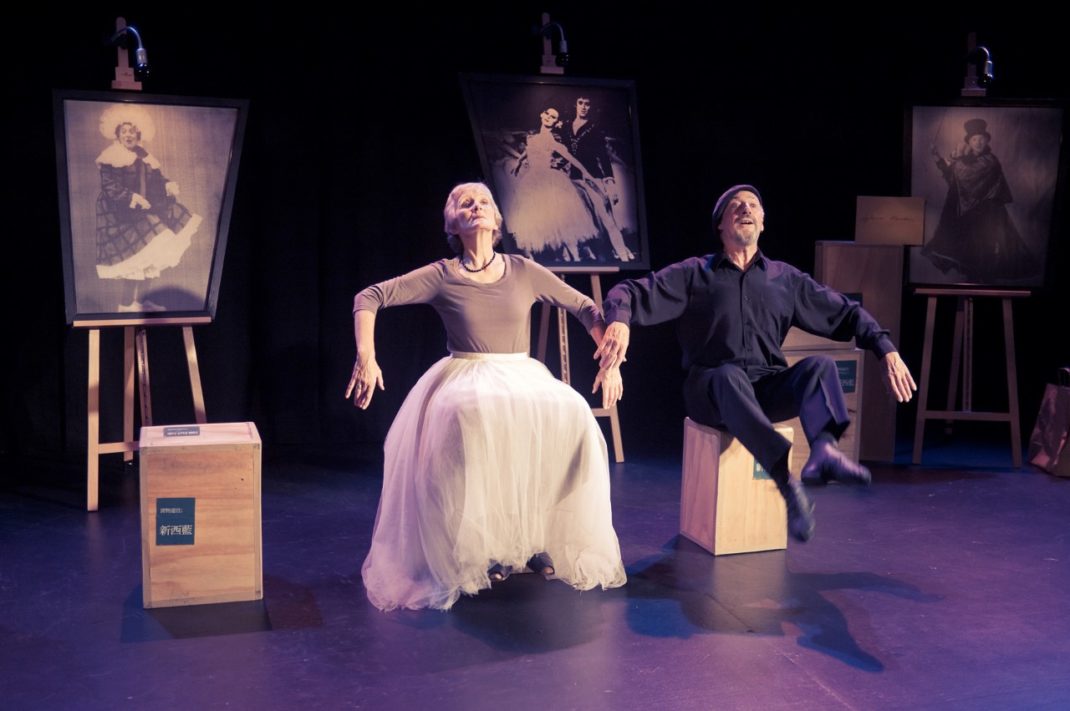
From the opening sounds of a train hurtling by at speed (where might that railway journey be headed?) to the softest strains of Sylvia’s remembered lullaby, ‘Shine little glowworm, glimmer’,there are hints of the several griefs that are layered into her life, and we are carried by a spellbinding 90 minutes of faultless performances by Helen Moulder and Jon Trimmer, both of them impeccably timed and modulated. It cadences in a never-to-be forgotten scene of redemption. I feel sorry for people who don’t live in Wellington and can’t get to one of the remaining performances this week.
Jennifer Shennan, 11 November 2019
Featured image: Helen Moulder (Sylvia) watches as Sir Jon Trimmer (Karpovsky) performs as Drosselmeyer. Photo: © Stephen A’Court
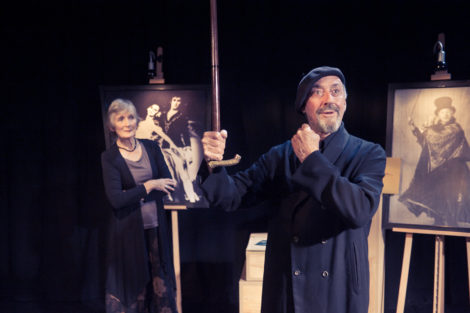
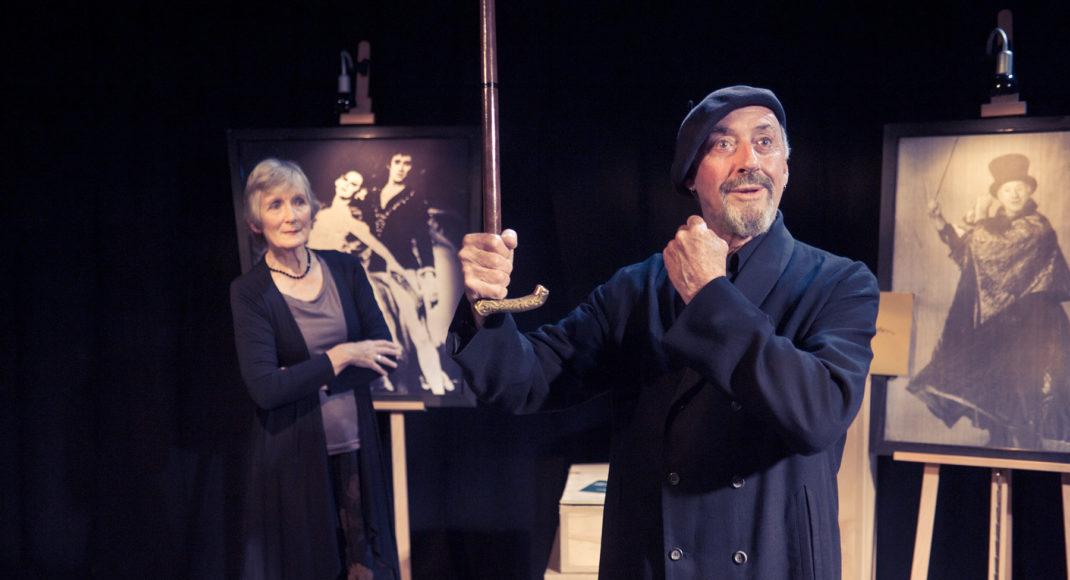
I so hope this has been recorded on film. Too be lost forever once this season ends would be heart breaking and a unrecoverable loss to our dance and theatre history.
Thanks Jane
Helen has arranged for video coverage of a performance — so, not the film treatment they clearly deserve, but at least a record of this most memorable production that uses the talents of two of our finest theatre performers.
Keep in touch with Willow Productions for progress report on the video.